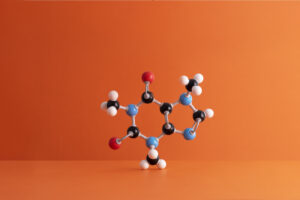Caffeine, one of the most consumed psychoactive substances worldwide, is a non-selective antagonist of adenosine receptors, including ADORA2B expressed on RBCs. The ADORA2B receptor plays a key role in regulating both metabolic and hypoxic pathways; its activation stimulates glycolysis and 2,3-bisphosphoglycerate (2,3-BPG) synthesis, leading to oxygen unloading under hypoxic conditions. Based on preliminary studies suggesting that caffeine may affect the quality of stored RBCs, researchers stratified 13,091 blood donors enrolled in the Recipient Epidemiology and Donor Evaluation Study (REDS) RBC Omics study. Donors in the 5th and 95th percentile for end-of-storage hemolysis (n=643) were asked to donate a second unit for analysis of hemolytic, metabolomic and proteomic markers as well as ADORA2b SNPs. Caffeine levels correlated with increased hemolysis and lower post-transfusion hemoglobin increments, particularly in recipients of RBCs from donors with common ADORA2b variants in the REDS vein-to-vein database. Mice transfused with either wild-type or ADORA2b knock-out RBCs confirmed that ADORA2B is important for post-transfusion recovery and that storage of RBCS with caffeine also decreases transfusion efficiency. The presence of caffeine in stored RBCs may compromise metabolic pathways that reduce ATP production and increase hemolysis during storage. Future studies exploring the impact of caffeine and variants of ADORA2B are needed as well as to assess whether dietary recommendations for donors are warranted.
Reference:

